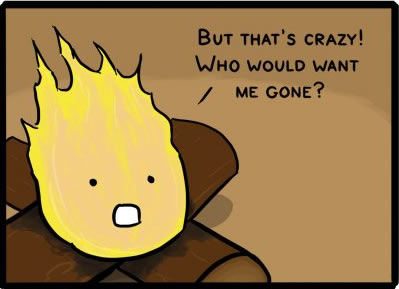I want to preface this by stating that I am going to speak to Letters of Insurgents with a combination of personal journal and exposition as this is both a book that is very personal to me and deserves some analysis beyond the personal.
Anyone who knows me knows that I am a very angry person. I have been and continue to be motivated by anger. During the period when I was most influenced by Western (psychology) and Other (martial arts, meditation, etc) mental healing modalities this became a concern, since there was a limit to how “healthy” I could become if I was not going to resolve the underlying anger at the root of my personality. I needed to “let it go” if I were going to become a person at peace with myself.
Suffice it to say that I resolved never to be at peace with myself or my condition. I devoted my efforts toward using that anger as motivation to continue working on projects, relationships, situations even when they were boring, irrelevant, or ridiculous. Over time I came to realize that my anger was generally not personal (not about the seeming target). It was about me and my dissatisfaction with my condition. Generally it was not related to my particular impatience or the actions of those around me at the time. Anger remained the vibration that resonated with me but was not the entire scope of my interaction with each and every person at each and every moment.
Punk rock was the perfect milieu for anger, because within punk rock anger went without question. If you were a punk (in the mid eighties) you were pissed off. You came from some variation of a shitty background and/or were so fucking intelligent that you suffered the mediocrity of public education prison life. When punk dried up (for me) it seemed like I suddenly had to justify my dissatisfaction in a way that I never did in punk. Being pissed off wasn’t considered appropriate behavior, in particular in the let’s change the world crowd. I didn’t understand this at the time and I don’t understand it today. I want to destroy the world because of the horrors that it has turned beautiful people into, because of the pain I see around me, and because of the constraints everywhere. (The desire for) social transformation does not come out of the end of an intellectual process by which I have determined the best approach by which to create the ideal form. I do not use logic to express my motivation. I use anger.
In anarchist circles this punk approach is hard to find. While you can find people dressed in the right clothes (punk, neo-punk, gothic punk, crusty punk, hardcore punk, ad nauseum) and people who come out of the “punk scene” their fashion and music tastes usually come out of a really different set of motivations than their politics. Usually these punk rockers (which I will differentiate from a punk aesthetic or value) take on anarchist politics as an expression of seriousness. “I might look like this (threatening) and use this (anarchist) word to describe my political philosophy but that actually means this (direct democracy, sharing, caring, lots of meetings, etc).” This becomes a cipher, only comprehensible through the process of participation…
I am reminded of a parable I read in a biography on Prabhupada (the founder of ISKON aka the Hare Krishnas). I found him fascinating at the time because of the fact that his rhetorical skills were, in fact, an appropriate substitute for the emptiness of his religious point of few. (This is America where every silver tongued charlatan can make a million dollars if they set their mind to it, especially if they are selling a new way to reach God…) Anyway Prabhupada is walking along the beach with a Catholic priest discussing religion. The priest remarks to Prabhupada that Prabhupada would understand the importance of the trinity and other affectations of the priest’s order if Prabhupada were only to devote all of his time/energy to the priesthood for a period of time (a couple of weeks). Prabhupada’s pithy response was that of course! All the priest had to do to understand Krishna consciousness was the same. I am reminded of this story often when I think of rhetoric as a substitute for personal growth or shared realizations.
Somewhere in here is the distinction between belief, identity, and action that I’ll probably follow up upon during the next 10 weeks as I re-read the lovely “Letters of Insurgents” with you. For the sake of this discussion Letters of Insurgents can be referred to as a central text in my life. I first read Letters of Insurgents at the “right” time in my life. It was during a period of great loneliness when I was first confronted with the dilemma of scenes and friendship circles as poor (and rich) substitutes for relationships and family. This book was my guide from a certain kind of innocence to what I have become, and in the decade and a half since then this book stands out as something that cleared the way for me.
Chapter One
I’ll try to stick to a couple of conventions throughout this reading. Chapter One refers to the back and forth exchange between Yarostan (Y) and Sophia (So), Obviously each chapter bleeds into the next but the exchange of letters is a convenient device for the division of the book. I also am keeping a growing personal biography of each character as I write this book, adding to it as each character becomes more fully developed.
My guess, after reading Artnoose’s first article is that there will be two kinds of readers of Letters of Insurgents. There will be those who identify more with Sophia’s character (and by extension with Fredy) and those who more-or-less identify equally with everybody. I fall in this second category as my personal experiences have some overlap with every major character in this book and, as a personality type, I have been fully committed (for better AND worse) to each of the decisions as I made them. I have tended not to worry much (especially when I was younger) about the consequences of my behavior. Perhaps more accurately “worrying” wouldn’t be the best description of how I contemplate activity. Perhaps this brings us back to the question of this.
Prior to reading Letters of Insurgents I was trapped inside the terminology of “this”. I wore this, I lived like this, I ate this, I dated like this; entirely circumscribed by a scene that raised me, demonstrated the acceptable models of behavior and ways to discover knowledge. I knew the hand-wave shortcuts because I was writing them while I was contained within them. Letters of Insurgents was the first text, that I was prepared for, that criticized me accurately. At the end of my reading I wasn’t left empty, valueless on the side of the turnpike as the right answers flew by me, but I was forced away from the comfort of waving hands and shared this into something new.
One way I can speak to this book perhaps differently than others will is that I am the beneficiary of the section of the anarchist milieu that has been most directly influenced by this text in particular. Perhaps this will be a disagreeable thing to say but I believe that Letters of Insurgents is a book of ethical criticism targeted in particular at the anti-authoritarian milieu of the 60s-70s but almost as relevant to the anarchist space of today. The section of this space that has been most active in the critical analysis of it has to be somewhere between the publications “Fifth Estate” (which Fredy was an important participant of) and “Anarchy: A Journal of Desire Armed” which I have until just recently been a publisher of. My five years of publishing Anarchy magazine also represents an intense critical engagement with the milieu/space that is similar, although not identical by any stretch, to Fredy’s. At the very least it is safe to say that we had all read Letters of Insurgents with great interest and attention and believed ourselves to be informed by Fredy’s eye on our progenitors.
Finally, chapter 1
It is striking to observe communication by the old pen-to-paper mechanism of the letter. The message in a bottle that may-or-may-not make it to its target. The languid attention to mundane aspects of daily life and on painting a canvas with subtle shades. This is entirely different than our time where this kind of personal textual communication is extinct or nearly so. In a world where each of us is party to so much text this might seem impossible to say but my own experience is that I have stopped communicating in the loving way shared by this novel since the rise of digital communication in my life and I know of only a very small percentage (less that 5%) of my close friends who write letters at all (and even fewer who don’t use a keyboard to do it). This creative form is dying and at what cost? Obviously hundreds of thousands of words have been typed asking this question but the particularity of this question for the anarchist space, for the world destroyers and dreamers of dreams is slightly different than for the publishers of newspapers and sellers of calligraphy equipment. Perhaps the short answer is that our communication has become more practical and disconnected from humanity. We no longer are expressing, in great detail, the horror show of our daily lives to each other outside of journalism. We aren’t sharing our stories with individuals but in a way that is only possible with copy and paste. We are receiving stories in a similar manner, which requires content filters that weren’t required when we would receive but a letter or two a day.
There is actually a tendency in our space that is reverting to an analog discursive regiment or never left it. The vanguard of this is the publication “The Match” out of Tucson Arizona that has never been available online or digitally in any form . Since then there are new publications like “Communicating Vessels” out of Portland and Letters Journal (Kentucky) that maintain a similar pen-and-ink aesthetic. In all cases this involves reproduction of long form letters and an attention to different details than that allowed for by Google search results and mass appeal. Similarly there is still a generation of letter writers (of which John Zerzan is the best known) who spend a considerable part of their day doing correspondence in the old school.
There are only a few themes covered in the first two letters that I have anything to say about. The first is the dangling issue of Sabina’s criticism of the project of revolt described by the Events at the Box Factory (EBF). “An old boss was thrown out and a new one replaced him, that’s all.” The second is the question of identification–whether it is as an expression of common heritage (humanism) or something more existentially potent (the proletariat, the whatever being, etc). The third is about social conventions (“Father”, “daughter”, “Mother”, “son”). Finally is the question of the good revolutionary.
Sabina and EBF
I identify strongly with Sabina’s criticism of the EBF as “nothing.” I agree that the general project of the Left as it expresses itself in strikes, protest, and even revolution has been woefully inadequate to the circumstances of their times and is even more hilariously inept and inadequate to the circumstances of today. I basically believe that this shared criticism goes without saying which is why I do not participate in the debates on the matter which swirl around the projects I partipate in.
That said, I have no doubt that I would personally have been a totally engaged participant in those events had they occurred at my place of work. I would consider others who shared that experience some of the most important people of my life and that moment a special one indeed. I almost fear an event of real magnitude happening in my life as I believe that, were I to survive, the rest of my life would seem a pale reflection of the time when something occurred.
As a partial example of this, my affinity group participated in the closure of San Fransisco in 2003. We were one of the hundred of bands of people who wandered around town closing intersections, stopping traffic, and generally just enjoying wandering around a city that is usually filled with crap (and cars) while it was peaceful. It was lovely seeing the incompetence of the cops and the futility of the car drivers. I was even bum rushed by one of them (which was harmless and amusing). Locally there has been a generation of people who look back on that day as the high point of their political and social life. And they could be right, but I continue to believe that it was just an enjoyable day in the sun in the wonderful company of people I care for and little more.
Sabina would put voice to what is generally considered the “AJODA” (Anarchy: A Journal of Desire Armed) point of view and continues to be one that I essentially agree with, but it is generally read as being a statement that begins AND ends the conversation. I believe that is wrong. I think you can both not believe in the total righteousness of your project (political or not) AND still partipate in it. We are not Crusaders, the revolution is not just around the corner, the means by which the world will be changed, and more importantly how we will live a meaningful life, is not simply defined or stated.
Identification
Y identifies with prison guards in his first letter and is rebuked by Sophia
It’s simply ridiculous to identify yourself with them. The people who arrested me weren’t workers but police agents. They had never been committed to the self-liberation of workers; on the contrary, their lifelong commitment was to establish a dictatorship over the workers, to transform society into a beehive and themselves into queen bees, to become the wardens of a vast prison camp. They won and we lost. That sums up the entire history of the working class. But how can you say
those who fought against them contributed to their victory?
While I would take great exception to defining my own project as that of the working class (and likely Fredy concurs since Against His-tory Against Leviathan was written later) I think that the thrust of this is a great challenge for those who would live the great struggle. If you can’t find a way to identify with those who (to put it frankly) oppress you then how will you survive at work, on the roads, or in the queue for a social service or a beverage? Somewhere in this question is the difficulty of the revolutionary project…
Sidebar: the revolutionary project is convenient shortcut terminology (jargon) for the idea that one desires a totally different world, believes that achieving that world will require a break (whether that is bloody, merely cognitive, or psychic is hypothetical) with the existing order. Traditionally the term revolution evokes images of storming the Bastille (France) or Summer Palace (Russia) which more-or-less makes the terminology moot during the period of online petitions and social networking protests against conditions that do not give a fuck.
…which is why I don’t really use the word. To survive in this world there is an expectation of civil humanistic behavior. The break from this world requires experience in uncivil, a-human behavior. This is a tantalizing thread for me.
Social Conventions
This will be teased out a bit in the later letters but the family (Sophia, Luisa, Sabina) that escaped to the West did so because of class privilege and family relations. It is more than a little unfair for Sophia to speak from that place of privilege against the institutions that have benefited her. Unfair but not wrong. We live in this world and are shaped by it. In attempting to find our way a central challenge is to find the structural mechanisms by which we can preserve ourselves when convention surrounds us. The nuclear family is an embarrassment of submission and sublimation but is also a way to communicate the pressures and hierarchy that shapes and hardens us.
The classic anarchist family problem is one of providing children a lack of structure and as a result creating a person who does not have the ability to create boundaries for themselves. Each of our criticisms, to the extent that we actually put them into a meaningful practice, have consequences that are worth consideration. Criticism (and this is a theme I will be returning to a lot) is not the end of the conversation but the start of a different, and hopefully more interesting one.
The Good Revolutionary
Luisa serves as a punching bag in this chapter (and most of the book), as someone whose life is filled with unrewarding work, but outside of the book this archetype is still held up as a positive model of social change. Whether this is as the “grassroots organizer” who toils for decades to no avail or the proponents of a movement with no form or substance it is still convention that the great makers are also great sufferers. I guess for now I’ll finish up by saying that this book really cured me of my fetishization of the Good Revolutionary and I look forward to our greater success at leaving behind their models of social change. I could go on spitting at particular anarchist figures who I believe exemplify this strategy but I’ll leave them between the lines this week and dig into their particular backwardness as the story speaks to it.
I look forward to your letters.








